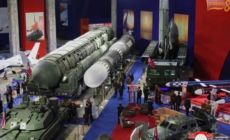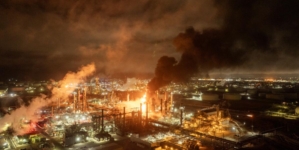Recycled raw materials were used at MOL Petrochemicals site in Tiszaújváros (northeastern Hungary), and the first trial production run was successfully completed, the company said in a statement.
The trial production proves that MOL is capable of producing high-quality polyethylene (PE) and polypropylene (PP) using circular raw materials—in this case, raw materials derived from plastic waste generated after consumer use—in accordance with the ISCC PLUS certified process.
This is an important step in the implementation of the company’s Shape Tomorrow strategy, one of the goals of which is to integrate the circular economy into production and strengthen MOL’s leading role in sustainable petrochemicals in Central and Eastern Europe, the announcement highlighted.
The ISCC PLUS certificate was awarded to MOL Petrochemicals in Tiszaújváros and Slovnaft in Bratislava in 2024 for their steam cracking and polymerization units. Exploiting synergies with waste management is an important part of the MOL Group’s Shape Tomorrow strategy, they stressed.
The company aims to continue transforming its operations towards a circular chemical industry and to produce up to 1.5 million tons of raw materials for the energy industry annually by 2030.
This is supported by a continuously expanding portfolio, that includes the municipal waste management concession in Hungary, previous plastic recycling acquisitions, and partnerships aimed at developing chemical recycling technologies, they wrote.
MOL plans to test additional circular raw materials and develop new processes to give waste an even more prominent role as a raw material in plastics production.
Fact
MOL Petrochemicals produces competitive-quality polymers for plastics production, and its products are widely used in industry. According to publicly available company data, MOL Petrochemicals achieved net sales of approximately HUF 509 billion (1.296 billion) in 2024, following HUF 498 billion (EUR 1.267 billion) in the previous year, with operating losses of nearly HUF 38 billion (EUR 96.7 million) last year and HUF 41 billion (EUR 104.4 million) in 2023.
Related article
MOL Strengthens Regional Supply Chains with Kazakh Crude Oil
In addition to its cooperation with Kazakhstan, the Hungarian company recently concluded a trade agreement for the import of 160,000 tons of Azerbaijani crude oil.Continue reading
Via MTI, Featured image: Facebook/Szijjártó Péter
The post MOL Tests New Way to Make Plastics from Waste appeared first on Hungary Today.
Source link

























